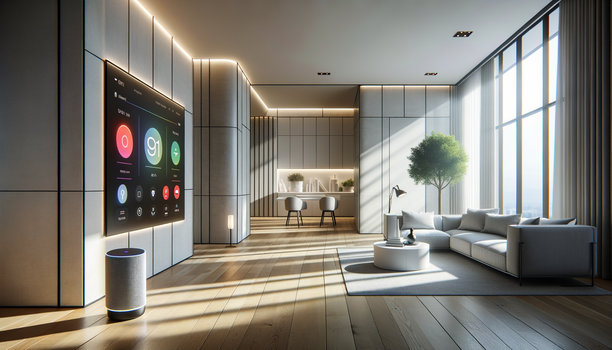
Hyosung Bio-BDO Investment Vietnam: Shaping the Future with $1 Billion
Letztes Update: 10. Mai 2024
Hyosung TNC is investing $1 billion in Vietnam to develop bio-based BDO. This initiative aims to revolutionize sustainable manufacturing and drive global innovation in the bio-economy.
Hyosung TNC's Pioneering $1 Billion Investment into Bio-BDO Production in Vietnam
In a significant stride towards sustainability, Hyosung TNC has committed to investing $1 billion in the development of a Bio-BDO facility in Vietnam. This facility is poised to have a production capacity of 200,000 tons per year, marking a substantial advancement in the global materials market towards more sustainable practices.
Understanding Bio-BDO and Its Impact
BDO, or Butanediol, is a critical chemical used primarily as a raw material for PTMG, which is essential in producing elastane fibers. Traditionally derived from fossil fuels, BDO's conventional production methods are not only resource-intensive but also environmentally burdensome. Hyosung TNC's shift to Bio-BDO, which involves the fermentation of sugarcane-derived sugars, represents a transformative move towards completely renewable raw materials, eliminating the dependency on coal and other non-renewable resources.
Hyosung Bio-BDO Investment in Vietnam: A Game Changer
The decision to locate the Bio-BDO facility in the Ba Ria-Vung Tau province of Vietnam is strategic. The region, known for its robust industrial infrastructure, will host the Hyosung BDO Project, which received its investment approval on March 30 during the Ba Ria-Vung Tau Province Vision Declaration and Investment Approval Ceremony. This location not only provides Hyosung TNC with logistical advantages but also aligns with Vietnam's growing emphasis on sustainable industrial growth.
The Role of Geno's Technology in Accelerating Production
Hyosung TNC's partnership with Geno, a U.S.-based leader in sustainable material technologies, is pivotal. By adopting Geno's proven BDO technology, Hyosung TNC can fast-track the operational phase of its Bio-BDO production, with an initial capacity set to reach 50,000 tons by the first half of 2026. This collaboration underscores a significant leap in scaling up sustainable material production using cutting-edge biotechnology.
From Raw Material to Fiber: Creating a Fully Integrated Production System
Hyosung TNC is not just investing in producing Bio-BDO; it is also setting up the world's first fully integrated production system for bio-based spandex, known as regen™ BIO-Spandex. This system spans from the initial Bio-BDO production in Ba Ria-Vung Tau to PTMG production in nearby Dong Nai and finally to the spandex manufacturing in a mass-production facility also located in Dong Nai. This vertical integration ensures a seamless, efficient, and sustainable production line, from raw material to final fiber.
Market Impact and Future Prospects
The global market for sustainable materials is keenly watching the development of Bio-BDO, especially given its potential to replace conventional materials in a wide array of applications, including textiles, packaging, and even in consumer goods like shoe soles. With the increasing regulatory pressures and consumer demand for sustainable products, Hyosung TNC's Bio-BDO project is set to not only meet but catalyze a shift in market dynamics towards sustainability.
Strengthening Global Market Presence Through Sustainability
Hyosung TNC's chairman, Hyun-Joon Cho, has articulated a clear vision for the company's future, emphasizing sustainability as a cornerstone for the next 100 years. The company aims to leverage its pioneering Bio-BDO and bio-spandex production capabilities to enhance its premium brand status globally, focusing on major markets in Asia, Europe, and the United States.
By 2030, Hyosung TNC plans to increase its sales from sustainable textiles to over 20% of its total textile revenue, a significant jump from the current figures. This ambitious target is set against a backdrop of a rapidly growing global market for sustainable textiles, projected to increase substantially by the end of the decade.
In conclusion, Hyosung TNC's $1 billion investment into Bio-BDO production in Vietnam is more than just an expansion of capacity. It is a strategic pivot towards sustainability that aligns with global environmental goals and market trends, positioning the company as a leader in the future of eco-friendly material production.
Diese Artikel könnten dich auch interessieren
Hyosung TNC's recent announcement of a $1 billion investment into biotechnology signifies a monumental step towards sustainable and innovative solutions in the industry. This move not only highlights the importance of bio-based technologies but also aligns with global efforts to embrace environmentally friendly practices. As the world leans more towards sustainability, investments like these are crucial for the development of new bio-materials and technologies that can transform various sectors.
Similarly, the YOFC acquisition RFS global expansion reflects a strategic move in the tech industry to broaden the horizons of fiber optic technologies. This expansion is not just about growing a business footprint; it is about innovating and leveraging technology to meet the future demands of connectivity and sustainability, much like Hyosung TNC's commitment to biotechnology.
Another noteworthy development is the Future of 3D printing Rapid.Tech. This initiative explores the boundaries of 3D printing technologies and their potential to revolutionize industries by creating more efficient and sustainable production methods. The parallels between this and Hyosung TNC’s investment in bio are evident as both aim to harness technology for smarter, more sustainable solutions.
The Emissions management software for companies is another critical tool in the tech world. It helps businesses track and reduce their carbon footprint, aligning with Hyosung TNC's vision of a sustainable future. By utilizing such software, companies can make data-driven decisions that are crucial for long-term environmental sustainability, echoing the proactive approach taken by Hyosung TNC in their recent investment.
